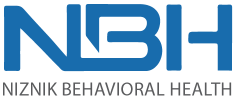Impaired Driving Prevention Month
December is Impaired Driving Prevention Month, designated to saving lives and preventing fatal car accidents. Because fatal alcohol-related traffic accidents are nearly doubled during the holidays, raising awareness and encouraging safe alternatives to impaired driving is crucial to keeping our roads safe and protecting our families.
What is Impaired Driving?
The first thing most people think about when it comes to impaired driving is drunk driving. However, impaired driving also includes driving while high, sleep deprived, or even when emotionally compromised. Any state which interferes with your ability to drive safely can create dangerous situations for yourself and other drivers.
According to the Center for Disease Control:
- More than 1 million people were arrested in 2016 for driving while under the influence of alcohol or narcotics.
- Drug use contributes to 16 percent of motor vehicle accidents.
- Motorcyclists between the ages of 35 and 39 have the highest percentage of fatalities contributed to by a blood alcohol concentration above the legal limit at 38 percent in 2016.
- Drivers with prior DWI convictions are 4.5 times more likely to be involved in a fatal collision.
With alcohol-related accidents at a critical level and increased traffic caused by holiday travels, December also warrants greater proactivity to protect our streets. While DUI checkpoints and increased police presence may prevent some drunk driving accidents, the real solution lies in prevention.
Impaired Driving Prevention
In today’s world, there’s no reason anyone should drink and drive. The risks involved are well documented and Uber, Lyft, cabs, and public transportation are easy to access. Designated drivers are also a great alternative to make sure you and your loved ones make it home safely. Unfortunately, a common side effect of alcohol use is lowered inhibitions and increased risk taking. We brush off the concerns of others, convinced we are more than capable of driving while under the influence, or underestimating the effect alcohol has on us.
Alcohol affects your reaction time, your depth perception, and most other motor skills. As a depressant, alcohol causes drowsiness and can create a mental haze that causes your brain to process information more slowly. This is how drunk drivers end up careening off road, running red lights and stop signs, or even going against the flow of traffic. No matter how confident you are, or how short the distance to your destination, take the pledge: don’t drink and drive.
RELATED:
Mothers Against Drunk Driving Champions Against Drunk Driving

